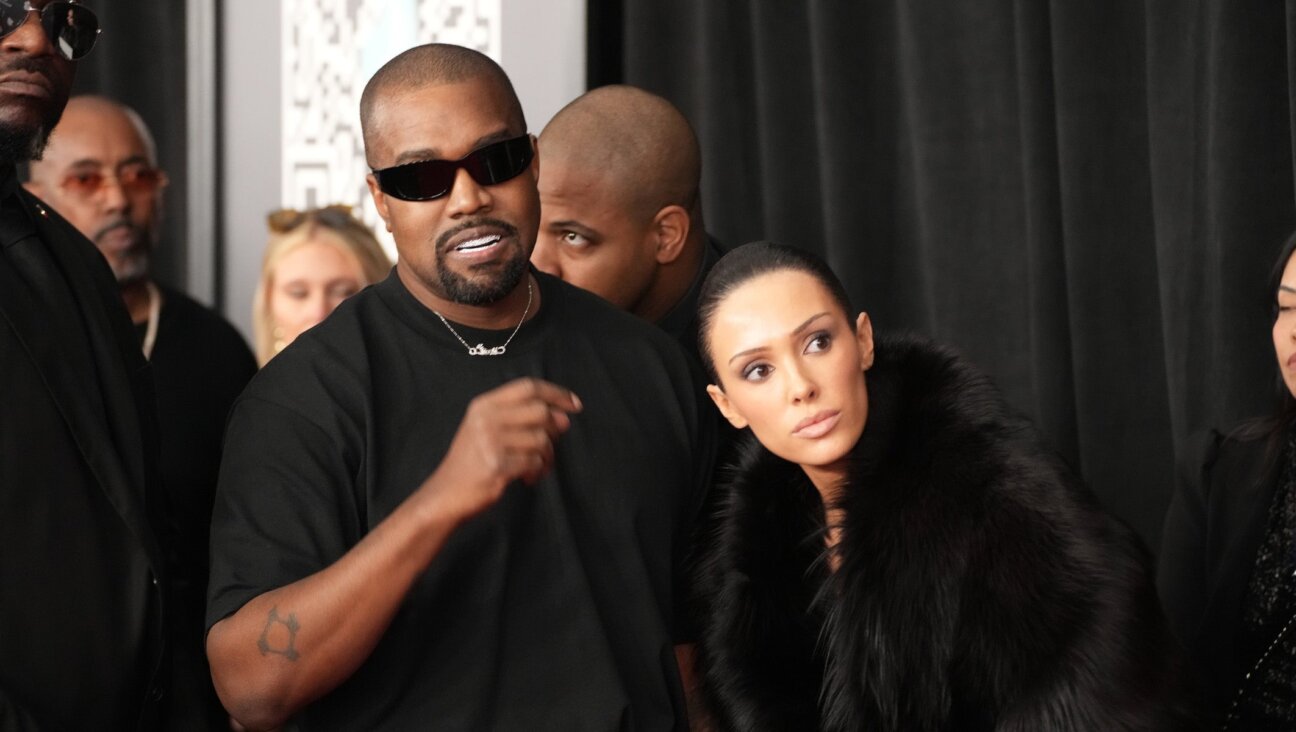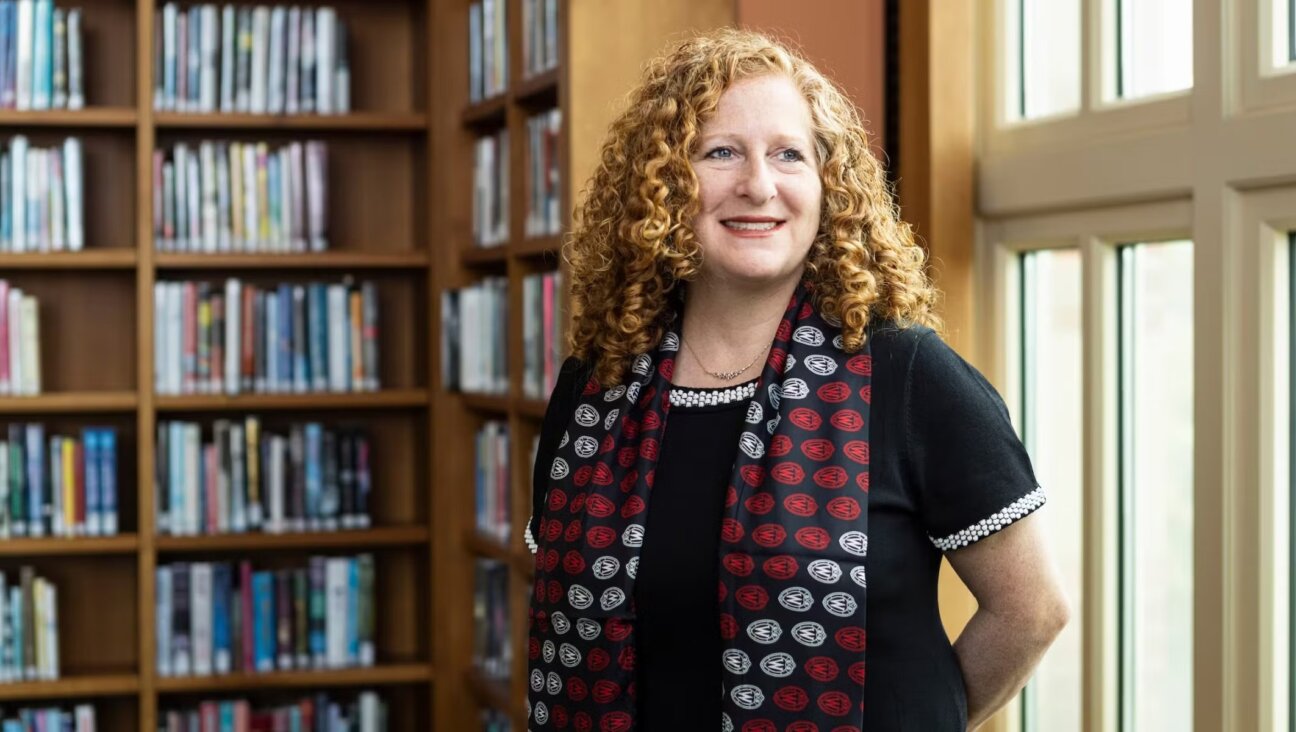Fight Over Dubai Ports Deal Is Not Ours To Lead
It is natural for the Jewish community to want to respond actively to the political firestorm over Dubai Ports World’s takeover bid, just as it was previously in regard to the controversy over the publication of caricatures of the Prophet Muhammad. Both present an opportunity to highlight the threat posed by Islamic extremism, and the urge to do or say something, to take a stand, is indeed strong.
However, this instinctive communal reflex should be strenuously resisted. Neither of these controversies is a specifically Jewish fight — despite the best efforts of Iranian President Mahmoud Ahmadinejad to depict the Muhammad caricatures as a manifestation of a Zionist plot against Islam.
It would be a mistake of the first order to lend credence to the ravings of Ahmadinejad and those ignorant enough to believe him. Each issue entails concerns that are of equal import to Jews and non-Jews alike: the dangers of Islamism to the West, the right of free speech and the need to exercise that right responsibly, the inappropriateness of responding with violence to offensive words or images, the need to protect our nation in the face of potential terrorist threats, and the need to participate in a world economy.
The lesson the Jewish community took from the Holocaust and the “failure” of the Jewish community to have done enough to prevent it is that Jews must never sit silently by when Jews are endangered. Without a doubt, Jews are endangered by Islamic extremism. Hence, the argument goes, Jews must loudly oppose Islamic fundamentalism wherever it surfaces.
But the argument, for all its elegant simplicity, suffers from the fate of most simple arguments — it ignores context and nuance. Its uncritical acceptance can make things worse, not better.
Islamic extremism does not target only or even primarily Jews or Israel, although it certainly seeks the destruction of the Jewish state. Its battle is as much with the West, including paradoxically both secularism and Christianity, and specifically with the United States. Some manifestations of Islamic fundamentalism, such as the victory of Hamas in the recent Palestinian election, call for a Jewish response. Even here the Jewish response needs to emphasize the implications of the victory for the Western world’s interest in not rewarding Islamic extremism.
The same, however, cannot be said for the caricatures of Muhammad. These were not drawn by a Jew. They appeared in a newspaper not owned by Jews, in a country where Jews are numerically negligible and culturally and politically insignificant.
The violent reaction of Muslims around the world has revealed a gap between popular Islamic understandings of the world and the most fundamental underpinnings of all of Western society. Jews as Westerners have an urgent interest in the West’s winning this battle of ideas — but as Westerners, not specifically as Jews.
That the president of Iran claims that Jews were responsible for the insult to Islam inflicted by those cartoons does not make it so. Germany’s deputy foreign minister promptly and properly rebuked the Iranians for the effort to drag Jews and Israel into a dispute that was not of their making and of no special relationship to them. Nowhere in the Western world have these hallucinatory charges gained any credibility; on the contrary, they appear to have added to the Western European determination to resist Islamic demands to censor the press to avoid affronts to Islam.
What could Jews possibly gain by lending credence to the antisemitic and lunatic ravings of Ahmadinejad — especially in the eyes of Muslims who are not committed to his effort to make everything into a Jewish or Zionist conspiracy — by taking a prominent role in defense of press freedom and Western ideas of pluralism and religious freedom? The desire to do something, and the impulse not to sit idly by, may be admirable, but at least in this case, they are not wise.
Much the same is true of the battle over the Dubai Ports World deal. If the purchase of the operator of the ports by a United Arab Emirates-based company is a threat to our nation’s security — and that is a hotly disputed claim — it is a threat to all Americans, and not particularly to Jews. If it is not a threat, the opposition will be seen, correctly or not, as reflecting an anti-Arab bias.
To be fair, claims that the parent company cooperates in the Arab boycott of Israel are a different matter, and do call for a Jewish response. The port deal cannot be defended on the ground that international free trade demands it, while at the same time the company acts to thwart Israel’s right to trade freely in international markets.
That point aside, though, the question must be asked: What cogent argument is there for allowing opposition to the ports deal to be painted as Jewish opposition to everything Islamic or Arab, or for the United States to be portrayed as acting once again at the behest of the Jews?
If the Western world were not taking a stand, if the national security issues surrounding the ports were being ignored, if charges were taking root that the Muhammad caricatures were a Jewish plot, if the West was sleeping in the face of the Islamist threat — if even one of these were true, there would be reason for Jews to sound the alarm. None of these things, however, is true.
Acting effectively does not necessarily mean making loud proclamations, issuing press releases, going on pilgrimages or beating one’s chest. It means winning the fights one needs to win — however that can be done most effectively.
By now we should have learned that silence is not necessarily a sign of weakness. Sometimes it is a manifestation of confidence and intelligence.















